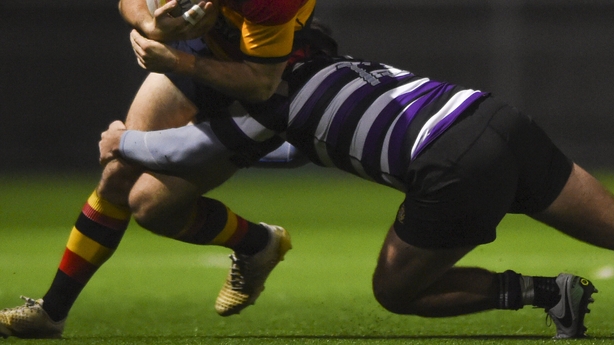The majority of high-force head impacts in community rugby occur as a result of poor tackle technique or at the breakdown, a study has found.
Data gathered from 'smart mouthguard' studies measured head impacts in matches and training at the grassroots and elite level of the sport.
It found 86% of forces measured in the men’s community game in New Zealand to be the same as, or less than, those experienced in other forms of exercise such as running, jumping or skipping, while 94% of forces were lower than those previously measured on people riding rollercoasters.
The data on the men’s community game came from the Otago Community Head Impact Detection (ORCHID) study, a joint project between World Rugby, mouthguard designer Prevent Biometrics, New Zealand Rugby, Otago Rugby and the University of Otago. Altogether, the study measured over 17,000 head acceleration events across more than 300 players, from senior rugby down to under-13s.
An extension of the study in the elite game followed in partnership with Ulster University and Premiership Rugby. It found that where low, medium and high-force events occurred, they were most common in tackles and carries, followed by rucks.
The study found that forwards were more likely to experience force events than backs.
Further updates into the women’s community game are currently being prepared for peer review and publication.

Results from the ORCHID trials have already been used by World Rugby to inform trials of a lower tackle height in the community game, while it has provided online training programmes for players and coaches on tackling and the breakdown.
World Rugby chair Bill Beaumont said: "These studies are concrete proof that World Rugby is putting its time, energy and efforts into backing up its words and the insights gained are already helping us make evidence-led moves to make the sport even safer. We will never stand still on player welfare.
"I’d like to thank the players all across the world who took part in the study. What they have helped to shed light on will be invaluable in advancing player welfare in rugby at all levels. Using this data we can say with some certainty that community and elite level rugby are very much the same game, but played very differently."
World Rugby announced last month that smart mouthguards would be added to the head injury assessment (HIA) protocols from January.
Watch Ulster v Munster in the URC on Friday from 7pm on RTÉ2 and RTÉ Player, follow a live blog on RTÉ.ie/Sport and the RTÉ News app and listen to live commentary on RTÉ Radio 1 Extra
Watch Dragons v Leinster in the URC on Sunday from 1pm on RTÉ One and RTÉ Player

